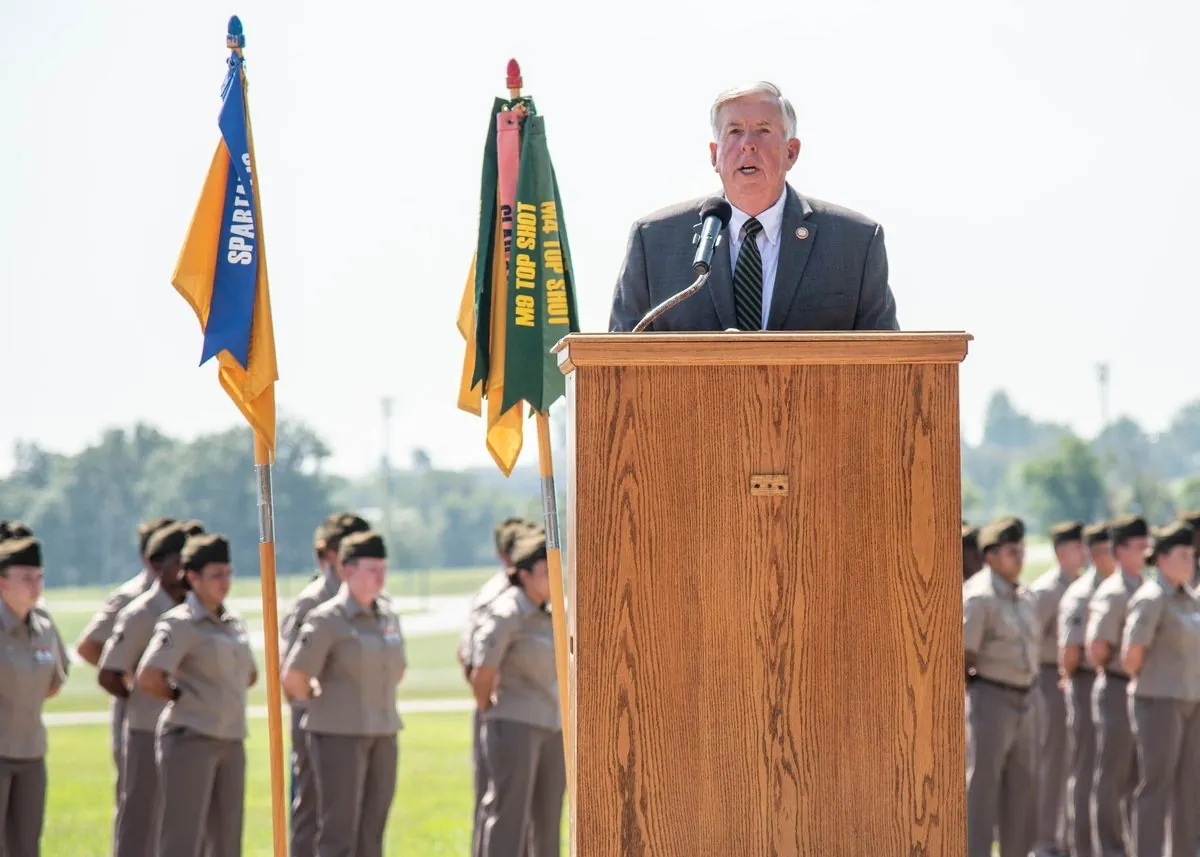In a striking display of policy contrast, Missouri Governor Mike Parson recently made decisions that highlight the complex nature of "pro-life" politics in the United States. On June 24, 2022, the same day the Supreme Court overturned federal abortion protections in the Dobbs v. Jackson Women's Health Organization decision, Parson signed a proclamation banning abortion in Missouri, making it the first state to do so after the ruling.
"We are issuing this proclamation to restore our state authority to regulate abortion and protect life."
This action aligns with the traditional "pro-life" stance on abortion. However, Parson's subsequent decision to proceed with the execution of Marcellus Williams, convicted of the 1998 murder of Felicia Gayle, has raised questions about the consistency of this position. Williams maintained his innocence, and concerns about evidence handling and jury composition led even prosecutors to recommend against the death penalty.
The juxtaposition of these decisions reflects a broader trend in American politics, where views on abortion and capital punishment often diverge. The General Social Survey, conducted since 1972, has been tracking these attitudes for nearly half a century. The data reveals that only a small portion of Americans consistently oppose both abortion and the death penalty, while the majority hold divergent views on these issues.
Interestingly, partisan differences in these views have evolved over time. In 1980, Democratic voters' opinions on abortion and capital punishment were similar to those of Republicans. However, over the past four decades, Democrats have increasingly opposed the death penalty while supporting abortion rights. This shift has led to a situation where, by some measures, Democrats have been more consistently "pro-life" than Republicans in recent years.
The Catholic Church, which officially opposes both abortion and capital punishment, provides another perspective on this issue. While Catholics generally follow a pattern similar to Republicans, they show lower levels of support for capital punishment. The Church's stance on the death penalty was formalized in 2018, adding a new dimension to the "pro-life" debate.
It's worth noting that the term "pro-life" itself has a complex history, originating in the 1960s and evolving alongside the abortion debate. The counterpart term "pro-choice" emerged in the 1970s, further shaping the discourse around these issues.
The ongoing debate surrounding "pro-life" policies is set against a backdrop of changing legal and social landscapes. As of 2024, 27 U.S. states still maintain the death penalty, despite a declining number of executions since the late 1990s. Simultaneously, access to abortion has become increasingly restricted in many states following the Dobbs decision, with the number of abortion providers declining since the 1980s.
These trends, along with the current 6-3 conservative majority on the U.S. Supreme Court, suggest that the complex interplay between abortion rights and capital punishment will continue to be a defining feature of American politics for years to come.
